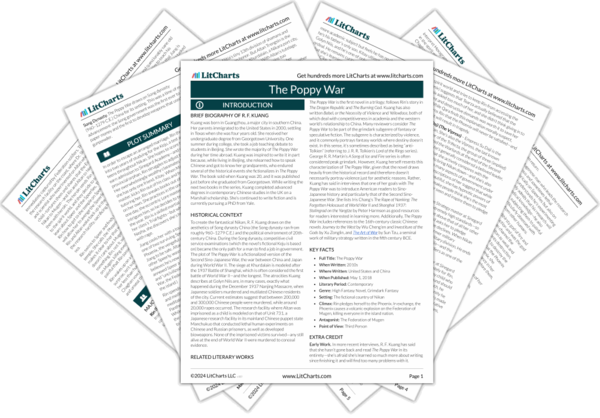AI ToolsNew
Tools to make learning and teaching easier
|
Previous
Chapter 24
|
The Poppy War: Chapter 25 Summary & Analysis |
Next
Chapter 26
|


Upgrade to unlock the analysis and theme tracking for all of The Poppy WarThe Poppy War!
Get LitCharts A+